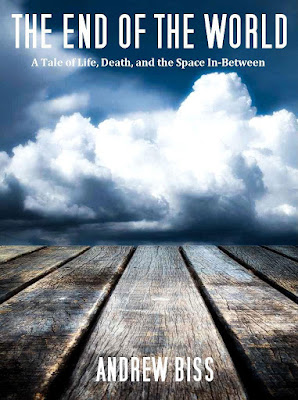Mind Over Meta
I’ve been dreaming a lot this week. In the literal sense, that is, not the aspirational one (although I may have indulged in a bit of that, too). Now, there are few more groan inducing things in life than hearing someone else jabber on about the dream they had the night before. It comes just above being forced to wade through other people’s holiday snaps, and right below having to hear someone subject you to tales of the latest cute thing their toddler (or cat) learned to do last week. Don’t worry, I shan’t be relating any of my dreams here (even if I could still remember them).
However, what struck me as quite bizarre about one of them was the incredible amount of literary detail it had. I was reading from some strange book (just telling this bit, I promise), and it was full of curious, quite frightening admonitions that were fascinating to read. I remember thinking at the time (in my semi-conscious state) that if I could just remember them when I woke up I could put them to great use in a play. Of course, I couldn’t remember any of them when I got up. But I was amazed at what my unconscious mind had written/created in sleep mode. And I got to thinking that, while sleeping, the mind is not concerned by any external rules or processes that one employs while writing. It’s free to just string together what ever it has in its data bank in any way it wants, without worrying about structure, plot, character development and motivations, etc., it just does whatever feels right. How great it would be, I thought, if one could harness that ability when putting pen to paper. Now, you might counter that what I read (what my mind wrote) in that book could quite easily have been unintelligible nonsense that seemed good at the time, without the clear insight of a conscious mind to appraise it. This is quite possible. But I don’t think so, and I’ll tell you why.
The best place of all to be when working on a play is in the zone; that is to say, so immersed in your story and characters that it all just seems to write itself…which is rather like being drunk, only without the alcohol (or the headache the next day). However, you have no control of that state – you either find yourself slipping into it or you don’t. But, when you’re fortunate enough to be there, it is like being in a dream state. Somehow you’ve slipped from your world into the world of your characters, and what flows from your mind to you fingers is on a sort of autopilot. In my opinion, that is very similar to what’s happening when you’re dreaming.
I could be wrong. It’s happened before.
However, what struck me as quite bizarre about one of them was the incredible amount of literary detail it had. I was reading from some strange book (just telling this bit, I promise), and it was full of curious, quite frightening admonitions that were fascinating to read. I remember thinking at the time (in my semi-conscious state) that if I could just remember them when I woke up I could put them to great use in a play. Of course, I couldn’t remember any of them when I got up. But I was amazed at what my unconscious mind had written/created in sleep mode. And I got to thinking that, while sleeping, the mind is not concerned by any external rules or processes that one employs while writing. It’s free to just string together what ever it has in its data bank in any way it wants, without worrying about structure, plot, character development and motivations, etc., it just does whatever feels right. How great it would be, I thought, if one could harness that ability when putting pen to paper. Now, you might counter that what I read (what my mind wrote) in that book could quite easily have been unintelligible nonsense that seemed good at the time, without the clear insight of a conscious mind to appraise it. This is quite possible. But I don’t think so, and I’ll tell you why.
The best place of all to be when working on a play is in the zone; that is to say, so immersed in your story and characters that it all just seems to write itself…which is rather like being drunk, only without the alcohol (or the headache the next day). However, you have no control of that state – you either find yourself slipping into it or you don’t. But, when you’re fortunate enough to be there, it is like being in a dream state. Somehow you’ve slipped from your world into the world of your characters, and what flows from your mind to you fingers is on a sort of autopilot. In my opinion, that is very similar to what’s happening when you’re dreaming.
I could be wrong. It’s happened before.



Comments
Post a Comment